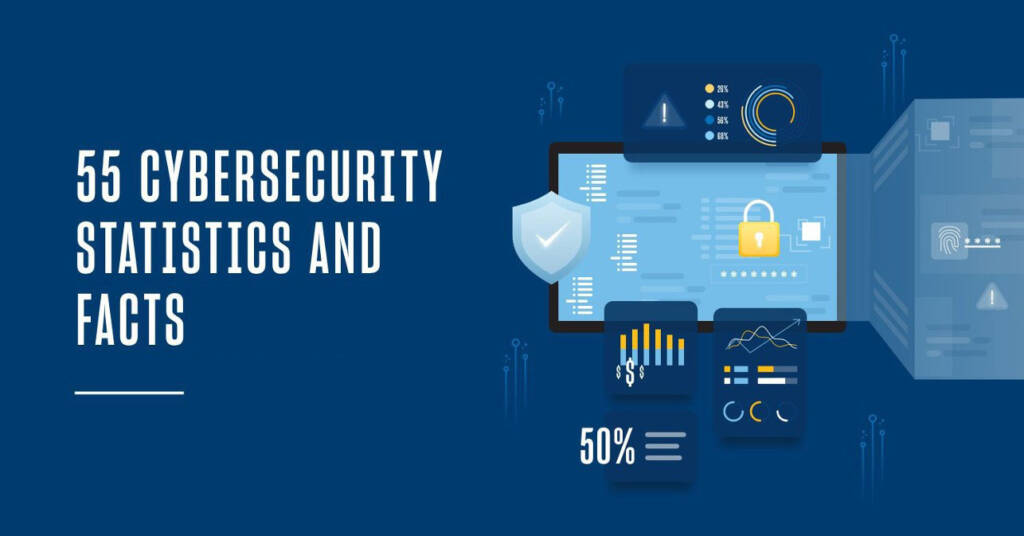If you’re looking for a high-paying field with opportunities across virtually every industry and region, a career in cybersecurity might be your perfect fit.
With cyberattacks growing in volume and sophistication, both government agencies and private companies are sounding the alarm — and looking to hire skilled professionals who can protect sensitive data and critical systems. The result? A dramatic surge in demand for cybersecurity talent across nearly every sector.
Thanks to this urgent need, many roles offer six-figure salaries, strong job security and the chance to play a meaningful role in defending against global security threats.
So, which cybersecurity jobs offer the best opportunities — and how can you land one? Keep reading to find out.
The 15 Best Jobs in Cybersecurity
Cybersecurity offers a wide range of jobs, with new roles emerging all the time. Below are some of the top positions in this fast-growing field, along with key skills, typical education and experience requirements and salary estimates. Keep in mind that salaries vary depending on factors such as employer, industry, job responsibilities, education, experience and location.
1. Information Security Analyst
Job description and responsibilities: As an information security analyst, your main responsibility is to protect an organization’s sensitive information and digital infrastructure. You’ll develop and implement security strategies, enforce data protection policies, monitor networks for breaches and ensure compliance with security standards. Educating employees on best practices to reduce risk is also an important part of the job.
Key skills: Analytical skills, data analytics, risk assessment, knowledge of security frameworks, network infrastructure, problem-solving, attention to detail, strong communication and creativity.
Education requirements: A bachelor’s degree in computer and information technology or a related field, such as engineering or mathematics, is often required. Industry certifications, such as Certified Information Systems Security Professional (CISSP), are preferred.
Experience needed: Professional experience in IT or a related role is typically required. Many analysts start their careers in an organization’s IT department.
Estimated salary: $124,910
2. Lead Software Security Engineer
Job description and responsibilities: A lead software security engineer guides a team of security professionals in designing secure software solutions and identifying vulnerabilities in code and systems. Responsibilities typically include assessing risk, implementing security best practices in the development lifecycle and ensuring your organization’s software remains resilient against cyber threats.
Key skills: Proficiency in programming languages, strong knowledge of cybersecurity principles and secure coding practices, risk analysis, leadership, time management and the ability to perform under pressure and meet tight deadlines.
Education requirements: Most employers prefer a bachelor’s degree in computer science, IT or a related field. A master’s degree and certifications such as CISSP, Certified Ethical Hacker (CEH) and Global Information Assurance Certification (GIAC) can also give candidates a competitive edge.
Experience needed: Typically requires 5+ years of professional experience in cybersecurity, software development or a related field.
Estimated salary: $145,890
[RELATED] Should You Become a Cybersecurity Engineer?
3. Chief Information Security Officer (CISO)
Job description and responsibilities: A chief information security officer is an executive leadership professional who oversees information security for a business or organization. This includes everything from strategic planning and assessing risk to developing digital security policies and overseeing incident response in the event of a data breach or cyberattack.
Key skills: CISOs need strong technical expertise in risk management, compliance, IT operations and security — including incident response and vulnerability management. Leadership, project management and cross-department collaboration are also critical. Equally important are analytical and interpersonal skills like problem-solving, critical thinking, time management and communication.
Education requirements: A bachelor’s degree is typically required, while a master’s degree and professional certifications such as CISSP, CISM and CISA are recommended.
Experience needed: In general, it takes anywhere from 10–15 years of education, experience and certification to reach a CISO position.
Estimated salary: $148,746
4. Cybersecurity Architect
Job description and responsibilities: A security or cybersecurity architect is responsible for analyzing security threats and recommending solutions to protect information and data. They may participate in the development of security hardware and software, oversee and educate staff on security policies, design security models and install VPNs, firewalls and more.
Key skills: Core technical skills such as security architecture and IT security principles; programming and engineering knowledge; strategic and analytical abilities and soft skills and professional competencies, including strong client relationship management and effective communication and documentation.
Education requirements: Many security architects have an undergraduate background in computer science, information technology, cybersecurity or a related field. This type of education will allow you to start with an entry-level cybersecurity position, such as cybercrime analyst, cybersecurity specialist or IT auditor. Investing in a master’s degree is also important since many job postings require an advanced education.
Experience needed: Most positions typically require at least 5–10 years of IT or cybersecurity experience.
Estimated salary: $144,461
5. Penetration Tester
Job description and responsibilities: Penetration testers — closely aligned with ethical hackers — are responsible for identifying and exploiting vulnerabilities in an organization’s systems, networks or applications. Using a variety of tools and techniques, they simulate cyberattacks to uncover weaknesses before malicious hackers can exploit them. Their work often involves writing detailed reports and recommending security improvements.
Key skills: Deep understanding of computer and network security, familiarity with common types of cyberattacks and their consequences, proficiency with penetration testing tools and scripting languages, strong analytical thinking and problem-solving skills and ability to think like a hacker while maintaining professional ethics.
Education requirements: A bachelor’s degree in computer science, information security or a related field is often a prerequisite site. Industry-recognized certifications such as CEH (Certified Ethical Hacker), CPT (Certified Penetration Tester) or OSCP (Offensive Security Certified Professional) are highly recommended.
Experience needed: Hands-on experience is essential — whether through lab environments, internships, bug bounty programs or previous roles in cybersecurity. Employers often look for candidates who can demonstrate practical skills through real-world projects or capture-the-flag (CTF) challenges.
Estimated salary: $119,895
6. Information Security Crime Investigator/Forensics Expert
Job description and responsibilities: Forensics experts investigate cyberattacks to uncover how they happened, what vulnerabilities were exploited and who may be responsible. They analyze digital evidence, trace the origins of attacks and help organizations improve their defenses. Related job titles include cybersecurity forensics analyst, incident responder and cyber forensics analyst.
Key skills: Data collection and forensic analysis, investigative and critical thinking skills, knowledge of cybercrime laws and digital evidence handling, familiarity with forensic tools and techniques and strong attention to detail.
Education requirements: A bachelor’s degree in computer science, cybersecurity or criminal justice is typically required. Professional certifications such as CEH or CISSP are recommended.
Experience needed: Hands-on experience with incident response, forensic tools and evidence analysis are important. Many employers look for at least 2–5 years of experience in a related cybersecurity role.
Estimated salary: $100,797
7. Security Systems Administrator
Job description and responsibilities: While the specific duties can vary, a security systems administrator is generally responsible for managing an organization’s digital infrastructure, including servers and networks. Common responsibilities include designing, installing, configuring and maintaining systems; monitoring performance and troubleshooting issues; installing network hardware and software; implementing timely upgrades and repairs; and responding to user issues or automated alerts.
Key skills: Experience with malware detection and vulnerability scanning, a strong understanding of firewall technologies and access control, familiarity with system configuration and performance monitoring tools and knowledge of network protocols and system hardening practices.
Education requirements: A bachelor’s degree in computer science, information technology, or a related field is typically required. Certifications such as CEH and CompTIA Server+ are recommended.
Experience needed: Employers often look for candidates with 2–5 years of hands-on experience in network management, system administration or related IT roles. It’s beneficial if you’ve focused on security operations in your work.
Estimated salary: $96,800
8. Security Consultant
Job description and responsibilities: A security consultant assesses the security and risk of a business or organization and provides solutions and recommendations on safety measures and protection. This person is typically someone who assesses the security and risk of a business or organization and ultimately provides solutions and recommendations on security measures and protection.
Key skills: Strong technical skills such as computer programming (e.g., Java, Python), network and security configuration, cloud infrastructure knowledge and encryption technologies. It’s also essential to understand threat detection, incident response and current cybersecurity strategies.
Education requirements: An undergraduate degree in computer science, information security, cybersecurity, engineering or a related field is highly preferred for a security consultant. Advanced degrees are typically not required, but according to Cyberseek, 60% of online job listings for a cybersecurity consultant position request a graduate degree.
Experience needed: In this field, a consultant may start as a junior member of an IT team and typically needs 1-3 years of experience before taking on more of a leadership role.
Estimated salary: $125,243
9. Cybersecurity Analyst
Job description and responsibilities: A cybersecurity analyst plans and implements security measures to protect an organization’s computer networks and systems. Responsibilities often include developing disaster recovery plans, monitoring for breaches, staying current on IT security trends and understanding the latest tactics used by cyber attackers.
Key skills: Essential technical skills include knowledge of information and network security, information systems, Linux, threat analysis, intrusion detection and vulnerability assessment. Project management skills and an understanding of security operations are also valuable. Important soft skills include analytical thinking, attention to detail, proactive risk management and effective problem-solving.
Education requirements: Most entry-level positions require at least a bachelor’s degree in computer science, information assurance, programming or a related field. This foundational education provides the core principles and technical knowledge needed for a cybersecurity career.
Experience needed: Pursuing internships or entry-level roles in IT or cybersecurity can provide hands-on experience and help you develop practical skills in identifying system vulnerabilities and implementing protection strategies.
Estimated salary: $124,910
10. Cybersecurity Engineer
Job description and responsibilities: A cybersecurity engineer, sometimes called an information security engineer, identifies threats and vulnerabilities in systems and software and then applies their skills to develop and implement high-tech solutions to defend against insider threats and cyber attacks.
Key skills: Expertise in network security tools (firewalls, VPNs, IDS/IPS), programming languages, ethical hacking, threat modeling, vulnerability testing and secure coding. Familiarity with operating systems, databases, encryption, identity and access management (IAM) and network protocols. Strong problem-solving and analytical skills, clear communication and the ability to perform well under pressure.
Education requirements: A master’s degree is increasingly preferred, particularly for senior or specialized roles.
Experience needed: Most employers look for at least 2–5 years of related experience.
Estimated salary: $122,890
11. Security manager
Job description and responsibilities: A security manager oversees an organization’s information security program, ensuring that systems, networks and data are protected from threats such as breaches, malware and unauthorized access. In this role, they are responsible for developing and enforcing security policies, managing incident response efforts, supervising cybersecurity staff and ensuring compliance with industry regulations. Security managers also conduct risk assessments, lead security audits and collaborate with IT teams and organizational leadership to implement a comprehensive security strategy.
Key skills: Risk management, incident response, compliance knowledge, security architecture expertise, proficiency in encryption, data loss prevention and securing sensitive information; strong network security skills, leadership, effective communication, problem-solving, strategic thinking and project management.
Education requirements: A bachelor’s degree in a relevant field, such as cybersecurity or computer science, is typically required. Some employers may prefer a master’s degree for more senior roles. Relevant certifications, such as the Certified Information Security Manager (CISM), may also be preferred or required.
Experience needed: A minimum of five years of experience in cybersecurity or a related field is typically required, with additional experience preferred for more senior roles.
[RELATED] 10 Reasons Why a Cybersecurity Degree Is Worth It
Estimated salary: $76,473
12. Malware analyst
Job description and responsibilities: A malware analyst specializes in identifying and analyzing malicious software like viruses, worms and ransomware. They examine malware to understand its behavior, classify threats and implement strategies to prevent its spread. Their duties include responding to incident reports, developing recovery procedures and keeping security teams informed about new risks, all while staying updated on the latest cyber threats.
Key skills: Knowledge of operating systems and networking, programming expertise, understanding security principles and the ability to identify, contain and reverse engineer zero-day malware. Familiarity with high-level programming languages is also important. In addition, soft skills such as being resourceful, thinking creatively, having strong communication abilities and being curious and determined are crucial for success in this role.
Education requirements: A bachelor’s degree in a related field, such as computer engineering or computer science, is typically needed. An advanced degree is usually not required but can give you an edge over other job applicants and provide additional training and industry knowledge.
Experience needed: If you’re considering a career as a malware analyst, gaining experience in a related technology field that involves coding and software development can be beneficial.
Estimated salary: $86,474
13. Security software developer
Job description and responsibilities: A security software developer is a specialized professional who designs and builds secure software systems, combining traditional programming skills with cybersecurity and forensic expertise. Their main responsibilities include developing new security technologies, enhancing the security of existing applications and integrating protective measures to defend against cyber threats. With the growing need for digital protection, these developers play a critical role in safeguarding sensitive data across industries.
Key skills: A solid foundation in computer programming and cybersecurity, coding, programming and strong organizational and interpersonal skills.
Education requirements: A bachelor’s degree in computer science, computer networking, math or a related field is often essential to build a solid foundation in the necessary technical skills. A master’s degree may not always be required, but it can provide a competitive edge.
Experience needed: Anywhere from 2–5 years of relevant experience is typically required.
Estimated salary: $111,845
14. Cybersecurity policy and strategy planner
Job description and responsibilities: A cyber policy and strategy planner plays a key role in shaping and guiding an organization’s cybersecurity efforts by developing and maintaining effective policies, strategies and procedures. Key responsibilities include analyzing and drafting cyber policies, collaborating with stakeholders, ensuring compliance with laws and regulations and promoting awareness of cybersecurity initiatives. They also support leadership, contribute to audits and help shape long-term cyber strategies.
Key skills: Understanding of external trends and issues; knowledge of laws, regulations and government processes; insight into organizational structure and culture; expertise in policy development and oversight; ability to develop and guide long-term strategies and familiarity with emerging technologies and digital tools.
Education requirements: A bachelor’s degree in cybersecurity, information technology, public policy, political science or a related field is typically required. A master’s degree in cybersecurity policy, law or public administration may be preferred for more advanced roles.
Experience needed: Most positions require at least 3–5 years of experience in cybersecurity, IT, policy development or a related field.
Estimated salary: $132,962
15. Cyber instructional curriculum developer
Job description and responsibilities: A cyber instructional curriculum developer designs and updates cybersecurity training programs based on organizational needs. They assess learning requirements, develop course content and policies and ensure materials stay current and aligned with mission goals and industry standards.
Key skills: Strong presentation and teaching abilities; expertise in media and communication methods; experience with instructional system design (ISD); the ability to assess training needs and design curricula for various audiences and a deep understanding of cybersecurity principles and practices to ensure the relevance and accuracy of training content.
Education requirements: Typically requires a bachelor’s degree in instructional design, education, cybersecurity or a related field; a master’s degree may be preferred for some roles.
Experience needed: At least 2–5 years of experience in instructional design, cyber training or a related field; experience developing cybersecurity content is often required or strongly preferred.
Estimated salary: $77,461
In-Demand Cybersecurity Skills
Each cybersecurity role requires a mix of technical expertise and interpersonal abilities. Below are some of the most sought-after skills in the industry.
Technical (hard) skills:
- Coding and scripting
- Risk assessment and management
- Cryptography and encryption
- Experience with Security Information and Event Management (SIEM) tools
- Ethical hacking and penetration testing
- Knowledge of security protocols across various operating systems
Interpersonal (soft skills):
- Clear and effective communication
- Team collaboration
- Strong attention to detail
- Leadership and decision-making abilities
- Critical thinking and analytical problem-solving
Where to Find Cybersecurity Jobs
If you’re ready to start looking for your next role, consider one of the many online resources, which include:
- U.S. Office of Personnel Management: Cyber Careers
- ClearedJobs.Net
- ClearanceJobs
- CyberSecurityJobs.com
- isecjobs.com
- Dice
- NinjaJobs
- Indeed
- ZipRecruiter
Don’t forget about the importance of networking. Some of the best opportunities come from word of mouth or internal referrals. Get active on LinkedIn, attend cybersecurity events and conferences and engage in online forums.
How to Get a Job in Cybersecurity
While there is a growing need in the marketplace for cybersecurity professionals, many employers struggle to find applicants with the right mix of skills and experience to fill these critical roles
That means if you’re looking to break into the field — whether you’re aiming for an entry-level analyst position or working toward a more specialized role — you’ll likely need a combination of hands-on experience, formal education and industry-recognized certifications.
Here are some tips to keep in mind:
- Build foundational knowledge: It’s important to understand the basics, which you can learn through degree programs, bootcamps or self-paced online courses.
- Earn certifications: Consider earning beginner-friendly certifications like CompTIA Security+ or Google’s Cybersecurity Certificate.
- Gain experience: Take advantage of free or low-cost online courses, and seek out internships with local nonprofits or small businesses that need help securing their IT systems.
- Network and join the cybersecurity community: It’s worth repeating that networking can be crucial to your cybersecurity career. Join online forums, attend local meetups or conferences and connect with others on platforms like LinkedIn.
- Stay informed: Since the cybersecurity field is constantly evolving, staying current on the latest threats, tools and trends is essential. Lifelong learning, curiosity and vigilance aren’t just encouraged — they’re necessary for staying relevant and in demand.
- Informational interviews: An information interview is a casual conversation where you ask someone in a role or industry you’re interested in for advice, insights or firsthand perspectives. It’s not about asking for a job — it’s about learning what the work is really like, how they got started and what skills or experiences are most valuable.
Cybersecurity Certifications
As you’ve seen from many of the jobs listed, cybersecurity certifications are not only important but, in some cases, essential. While certifications alone may not guarantee a job, they carry significant weight, enhance your resume, and are often required for certain positions. Key cybersecurity certifications include:
- The Certified Information Systems Security Professional (CISSP): One of the leading cybersecurity certifications, the CISSP helps open the door to higher-level positions and the potential for increased pay. It is required for many key jobs at the Department of Defense and carries a lot of weight beyond the DoD.
- Certified Information Security Manager (CISM): This certification focuses on governance, risk management and compliance.
- Certified Information Systems Auditor (CISA): This certification focuses on auditing, controlling, monitoring and assessing information systems and can add a significant pay boost to a cybersecurity professional’s annual salary.
- Global Information Assurance Certification (GIAC): This certification focuses on specialty hands-on technical capabilities such as intrusion detection and forensics among others.
- Certified Ethical Hacker (CEH): For entry-level applicants, a CEH certification can be a great way to land your first job or get you into an entry-level position at your top choice company.
[RELATED] Which Cybersecurity Certifications Are Right for You?
Cybersecurity Experience Needed
Experience in cybersecurity is incredibly valuable — and often essential. Without it, landing even an entry-level role can be a challenge. That’s why it’s so important to take advantage of internships, certifications and other professional development opportunities early on. Here are some numbers to keep in mind:
- Entry-level roles typically require 0–2 years of experience
- Mid-level roles usually expect 2–5 years
- Senior roles often call for 5+ years, and sometimes 8–10 or more, depending on the position
Education Needed for Cybersecurity Career Success
To land a top job in cybersecurity, education is key. While a bachelor’s degree in a related field is required for most entry-level cybersecurity positions, those who aspire to have a long career in the profession should strongly consider a master’s degree. In addition to receiving a comprehensive cybersecurity education that opens up more opportunities, those with a master’s degree often earn a greater salary.
Cybersecurity master’s degree programs give students additional technical and theoretical skills and, depending on the program, can offer the leadership, managerial and business skills required in high-level positions. Popular degree programs that those interested in a cybersecurity career often consider include:
- MS in Cyber Security Operations and Leadership
- MS in Cyber Security Engineering
- MS in Computer Science
- MS in Computer Engineering
- MS in Information Assurance
- MS in Information Technology
- MBA (with specialty)
Of course, choosing which program is right for you depends upon your career goals and aspirations.
The University of San Diego offers a 100% online Master of Science in Cyber Security Operations and Leadership and a Master of Science in Cyber Security Engineering degree (online or on-campus) that can be completed in as little as 20 months. A quick conversation with an enrollment advisor is a great way to explore your options.






